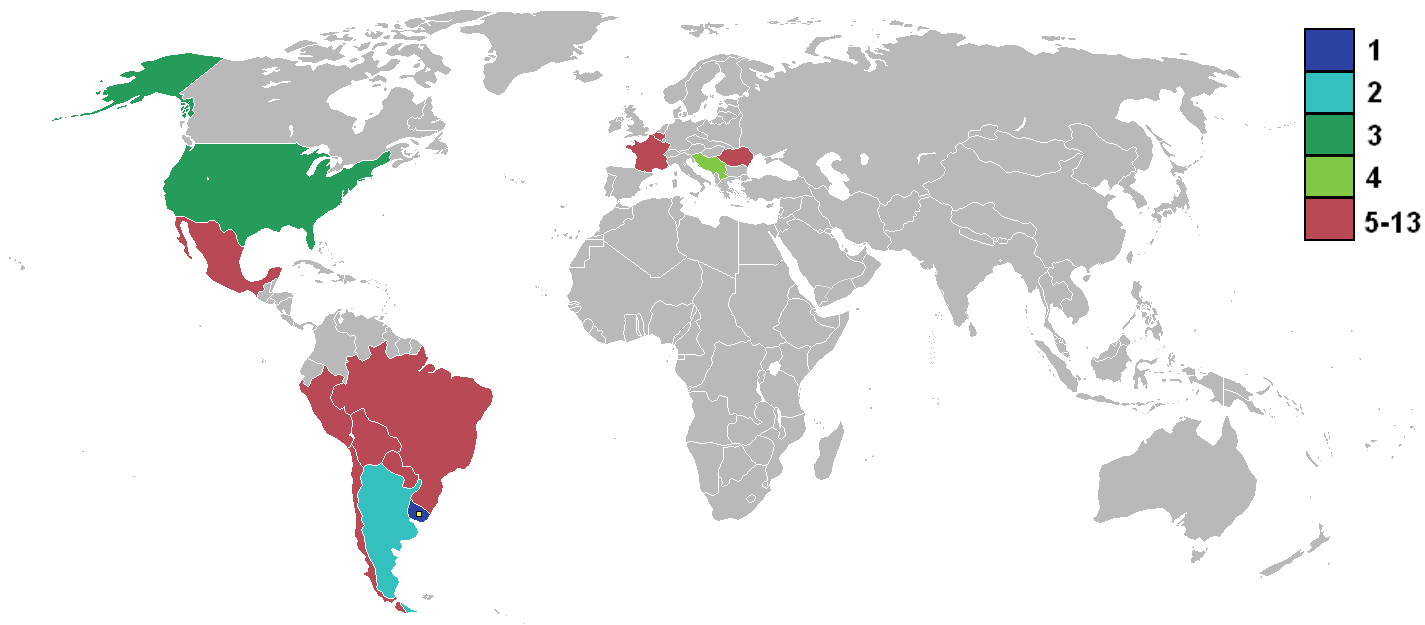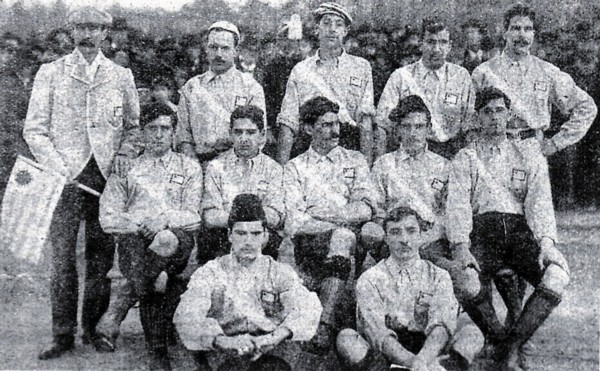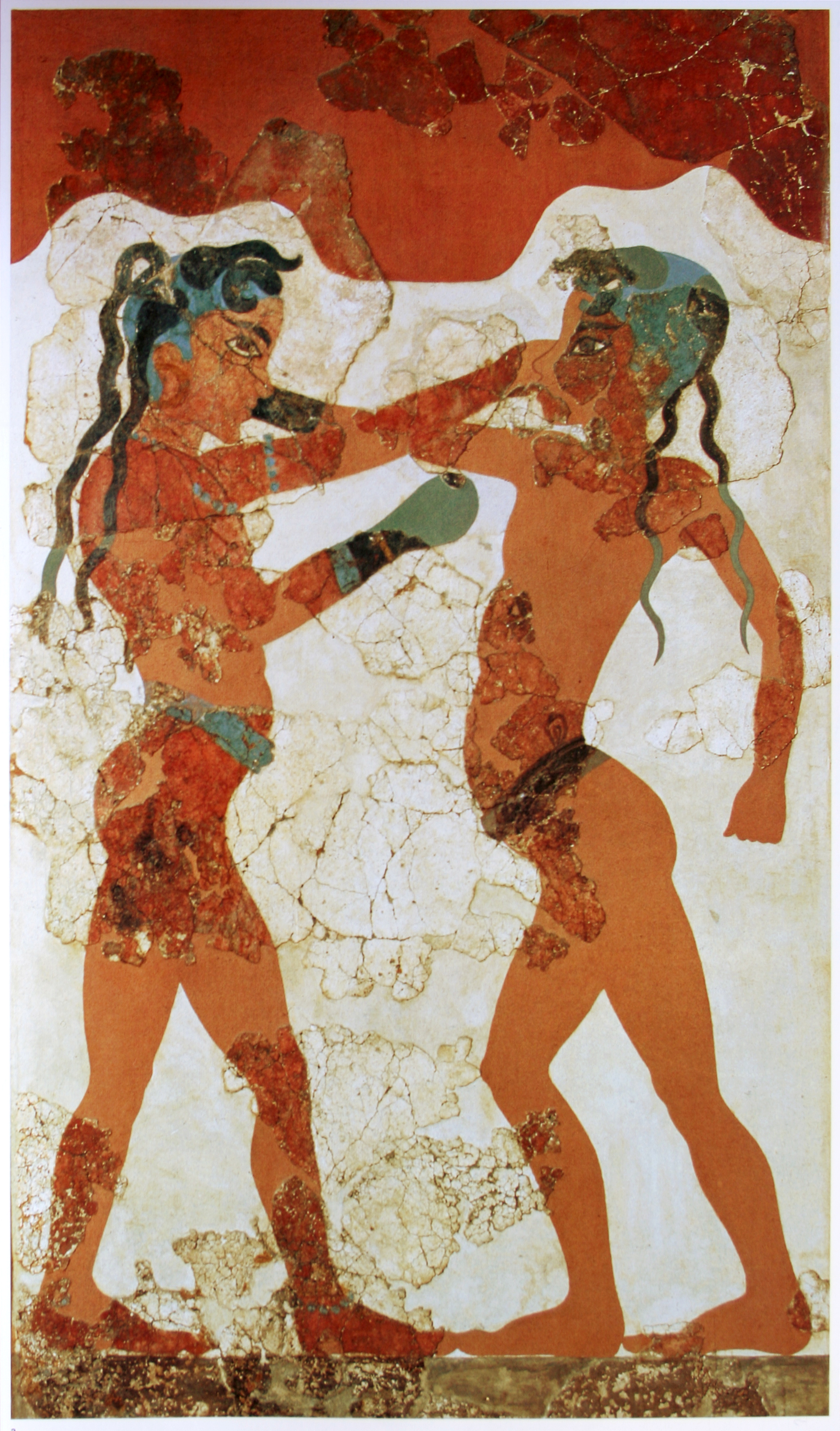|
Estadio Sportivo Barracas
Estadio Sportivo Barracas was a football stadium in Buenos Aires, Argentina, property of Club Sportivo Barracas. The stadium was one of the most important venues in Argentina, used for football and rugby union matches. It held 37,000 spectators. History Sportivo Barracas promoted to the top division of Argentine football, Primera División, in 1916. Three years later the club started to build a stadium, on a land located on Iriarte, Luzuriaga, Río Cuarto and Perdriel streets of Barracas, Buenos Aires. The field was delimited by poles joined with chains. Between the grandstands and the field, a one-metre wall was built. The stadium was first opened to public on May 25, 1920, when Boca Juniors beat Uruguayan Nacional by 2–1 in the 1919 Tie Cup final (that was played one year later). Nevertheless, the stadium was officially inaugurated on June 11, 1920, with a friendly tournament where the local team plus Rosarian clubs Newell's Old Boys and Tiro Federal. [...More Info...] [...Related Items...] OR: [Wikipedia] [Google] [Baidu] |
Barracas, Buenos Aires
Barracas is a ''barrio'', or district, in the southeast part of the city of Buenos Aires, Argentina. It is located between the railroad of Ferrocarril General Manuel Belgrano and the Riachuelo River, and the streets ''Regimiento de Patricios'', ''Defensa'', ''Caseros'', ''Vélez Sársfield'', ''Amancio Alcorta'', ''Lafayette'', and ''Lavardén''. The name Barracas comes from the word ''barraca'', which refers to a temporary construction of houses using rudimentary materials. History In the 18th century, "Barracas" began to grow on the banks of the Riachuelo River, becoming a slave quarter, as well as an area for leather tanneries, and abattoirs. On March 24, 1791, a bridge was built that gave the neighborhood an important strategic value during the British invasions of the Río de la Plata. In 1858, part of this bridge was destroyed by flood and was replaced by a new iron bridge in 1871. There were a series of problems with this new bridge until the inauguration of its replacem ... [...More Info...] [...Related Items...] OR: [Wikipedia] [Google] [Baidu] |
Copa Newton
Copa Newton was a football friendly competition contested between Argentina and Uruguay. The trophy, donated by Nicanor Newton, was contested 27 times between 1906 and 1976. History Nicanor Newton, director of ''Sportsman'' magazine, donated the trophy for a competition which would be held for beneficial purposes. The cup has been contested 28 times in total, with Argentina the winners on 17 occasions and Uruguay on 11. List of champions Finals The following list includes all the editions of the Copa Newton:ARGENTINA NATIONAL TEAM ARCHIVE by Héctor Pelayes on the RSSSF [...More Info...] [...Related Items...] OR: [Wikipedia] [Google] [Baidu] |
Montevideo
Montevideo () is the Capital city, capital and List of cities in Uruguay, largest city of Uruguay. According to the 2011 census, the city proper has a population of 1,319,108 (about one-third of the country's total population) in an area of . Montevideo is situated on the southern coast of the country, on the northeastern bank of the Río de la Plata. The city was established in 1724 by a Spanish soldier, Bruno Mauricio de Zabala, as a strategic move amidst the Spanish people, Spanish-Portuguese people, Portuguese dispute over the La Plata Basin, platine region. It was also under brief British invasions of the Río de la Plata, British rule in 1807, but eventually the city was retaken by Spanish criollos who defeated the British invasions of the River Plate. Montevideo is the seat of the administrative headquarters of Mercosur and ALADI, Latin America's leading trade blocs, a position that entailed comparisons to the role of Brussels in Europe. The 2019 Mercer's report on qual ... [...More Info...] [...Related Items...] OR: [Wikipedia] [Google] [Baidu] |
1930 World Cup
The 1930 FIFA World Cup was the inaugural FIFA World Cup, the world championship for men's national football teams. It took place in Uruguay from 13 to 30 July 1930. FIFA, football's international governing body, selected Uruguay as host nation, as the country would be celebrating the centenary of its first constitution and the Uruguay national football team had successfully retained their football title at the 1928 Summer Olympics. All matches were played in the Uruguayan capital, Montevideo, the majority at the Estadio Centenario, which was built for the tournament. Thirteen teams (seven from South America, four from Europe, and two from North America) entered the tournament. Only a few European teams chose to participate because of the difficulty of traveling to South America in the context of the Great Depression. The teams were divided into four groups, with the winner of each group progressing to the semi-finals. The first two World Cup matches took place simultaneou ... [...More Info...] [...Related Items...] OR: [Wikipedia] [Google] [Baidu] |
FIFA World Cup
The FIFA World Cup, often simply called the World Cup, is an international association football competition contested by the senior men's national teams of the members of the ' ( FIFA), the sport's global governing body. The tournament has been held every four years since the inaugural tournament in 1930, except in 1942 and 1946 when it was not held because of the Second World War. The reigning champions are Argentina, who won their third title at the 2022 tournament. The format involves a qualification phase, which takes place over the preceding three years, to determine which teams qualify for the tournament phase. In the tournament phase, 32 teams compete for the title at venues within the host nation(s) over about a month. The host nation(s) automatically qualify to the group stage of the tournament. As of the 2022 FIFA World Cup, 22 final tournaments have been held and a total of 80 national teams have competed. The trophy has been won by eight national teams. ... [...More Info...] [...Related Items...] OR: [Wikipedia] [Google] [Baidu] |
1924 Summer Olympics
The 1924 Summer Olympics (french: Jeux olympiques d'été de 1924), officially the Games of the VIII Olympiad (french: Jeux de la VIIIe olympiade) and also known as Paris 1924, were an international multi-sport event held in Paris, France. The opening ceremony was held on 5 July, but some competitions had already started on 4 May. The Games were the second to be hosted by Paris (after 1900), making it the first city to host the Olympics twice. The selection process for the 1924 Summer Olympics consisted of six bids, and Paris was selected ahead of Amsterdam, Barcelona, Los Angeles, Prague, and Rome. The selection was made at the 20th IOC Session in Lausanne in 1921. The cost of these Games was estimated to be 10,000,000 F. With total receipts at 5,496,610F, the Olympics resulted in a hefty loss despite crowds that reached up to 60,000 in number daily. The United States won the most gold and overall medals, having 229 athletes competing compared to France's 401. Highlights * The ... [...More Info...] [...Related Items...] OR: [Wikipedia] [Google] [Baidu] |
Football At The Summer Olympics
Football at the Summer Olympics, referred to as the Olympic Football Tournament, has been included in every Summer Olympic Games as a men's competition sport, except 1896 (the inaugural Games) and 1932 (in an attempt to promote the new FIFA World Cup tournament). Women's football was added to the official program at the Atlanta 1996 Games. In order to avoid competition with the World Cup, FIFA have restricted participation of elite players in the men's tournament in various ways: currently, squads for the men's tournament are required to be composed of players under 23 years of age, with three permitted exceptions. By comparison, the women's football tournament is a full senior-level international tournament, second in prestige only to the FIFA Women's World Cup. History Pre-World Cup era Beginnings Football was not included in the program at the first modern Olympic Games in Athens in 1896, as international football was in its infancy at the time. However, sources claim ... [...More Info...] [...Related Items...] OR: [Wikipedia] [Google] [Baidu] |
Uruguay National Football Team
The Uruguay national football team ( es, Selección de fútbol de Uruguay) represents Uruguay in international Association football, football, and is controlled by the Uruguayan Football Association, the governing body for football in Uruguay. The Uruguayan team is commonly referred to as ''La Celeste'' (The Sky Blue). Regarded to be one of the greatest footballing nations of all time, Uruguay has won the Copa América 15 times being tied with Argentina for the most titles in the history of the tournament. Uruguay won their most recent title in 2011 Copa América, 2011. Additionally, Uruguay are the holders of Four stars above Uruguay's football crest, four FIFA World Championships: The team has won the FIFA World Cup twice, including the first World Cup in 1930 FIFA World Cup, 1930 as hosts, defeating Argentina 4–2 in the final. Their second title came in 1950 FIFA World Cup, 1950, upsetting host Brazil 2–1 in the final match, which had the highest attendance for a football ... [...More Info...] [...Related Items...] OR: [Wikipedia] [Google] [Baidu] |
Plymouth Argyle F
Plymouth () is a port city and unitary authority in South West England. It is located on the south coast of Devon, approximately south-west of Exeter and south-west of London. It is bordered by Cornwall to the west and south-west. Plymouth's early history extends to the Bronze Age when a first settlement emerged at Mount Batten. This settlement continued as a trading post for the Roman Empire, until it was surpassed by the more prosperous village of Sutton founded in the ninth century, now called Plymouth. In 1588, an English fleet based in Plymouth intercepted and defeated the Spanish Armada. In 1620, the Pilgrim Fathers departed Plymouth for the New World and established Plymouth Colony, the second English settlement in what is now the United States of America. During the English Civil War, the town was held by the Parliamentarians and was besieged between 1642 and 1646. Throughout the Industrial Revolution, Plymouth grew as a commercial shipping port, handling imports an ... [...More Info...] [...Related Items...] OR: [Wikipedia] [Google] [Baidu] |
Boxing
Boxing (also known as "Western boxing" or "pugilism") is a combat sport in which two people, usually wearing protective gloves and other protective equipment such as hand wraps and mouthguards, throw punches at each other for a predetermined amount of time in a boxing ring. Although the term "boxing" is commonly attributed to "western boxing", in which only the fists are involved, boxing has developed in various ways in different geographical areas and cultures. In global terms, boxing is a set of combat sports focused on striking, in which two opponents face each other in a fight using at least their fists, and possibly involving other actions such as kicks, elbow strikes, Knee (strike), knee strikes, and headbutts, depending on the rules. Some of the forms of the modern sport are western boxing, Bare-knuckle boxing, bare knuckle boxing, kickboxing, Muay Thai, muay-thai, lethwei, savate, and Sanda (sport), sanda. Boxing techniques have been incorporated into many martial ar ... [...More Info...] [...Related Items...] OR: [Wikipedia] [Google] [Baidu] |
Luis Ángel Firpo
Luis Ángel Firpo (October 11, 1894 – August 7, 1960) was an Argentine boxer. Born in Junín, Argentina, he was nicknamed ''The Wild Bull of the Pampas''. Boxing career In 1917, Firpo began his professional boxing career by beating Frank Hagney by a decision in six in Buenos Aires. Originally declared a no decision, the bout's result was later changed to a win for Firpo. For his second bout, he traveled, in January 1918, to Montevideo, Uruguay, where he suffered his first defeat, a first round knockout at the hands of Angel Rodriguez. He put a string of six wins in a row after that, and so on November 1, 1919, he found himself challenging Dave Mills in Santiago, for the South American Heavyweight title. He lost on that occasion by a decision in 15 rounds, but then came back with a win over Andres Balsa by a knockout in round six. On April 20, 1920, he and Mills had a rematch and Firpo won the title with a first-round knockout. After one more win, he and Mills faced each ... [...More Info...] [...Related Items...] OR: [Wikipedia] [Google] [Baidu] |











.jpg)